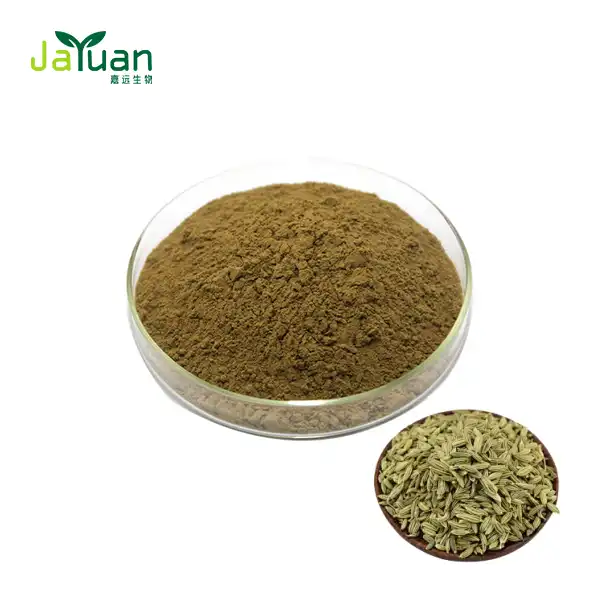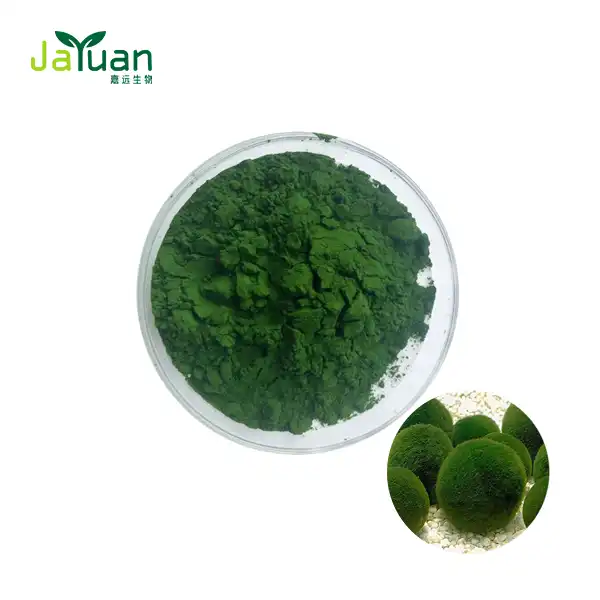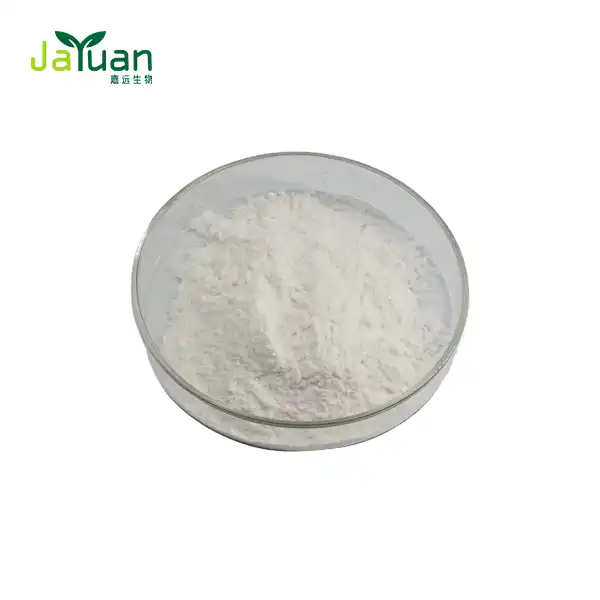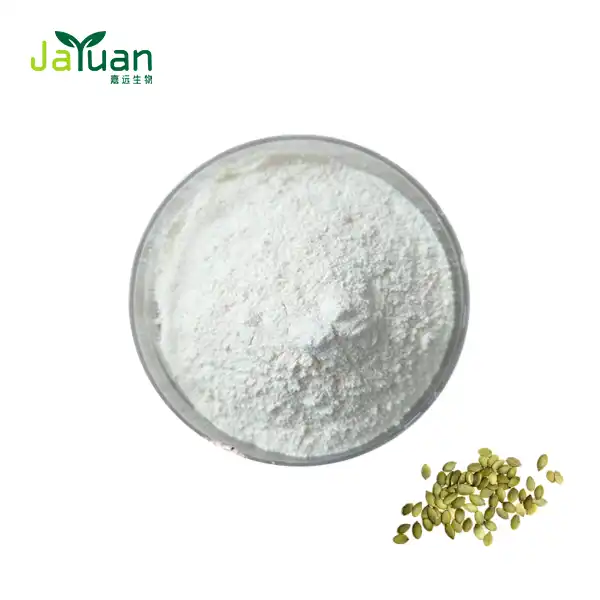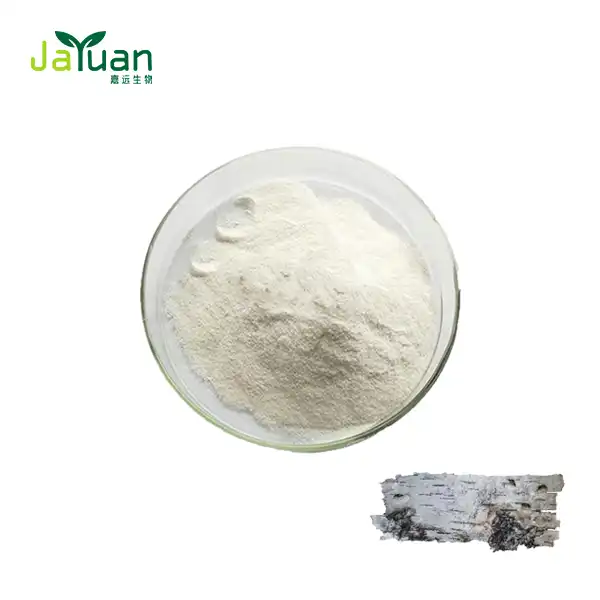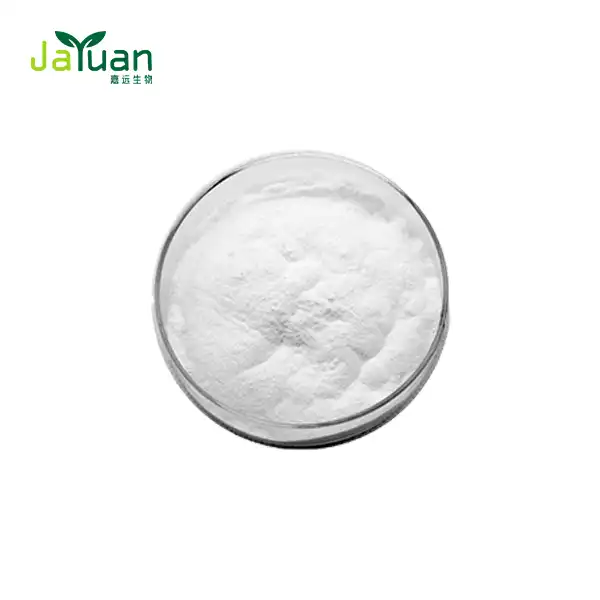Can tuna peptides improve muscle protein synthesis?
Tuna peptides have gained significant attention in the world of fitness and nutrition due to their potential benefits for muscle health. These bioactive compounds, derived from tuna fish protein, are becoming increasingly popular among athletes and fitness enthusiasts. But can tuna peptides really improve muscle protein synthesis? Let's dive into the science behind these fascinating compounds and explore their potential impact on muscle growth and recovery.
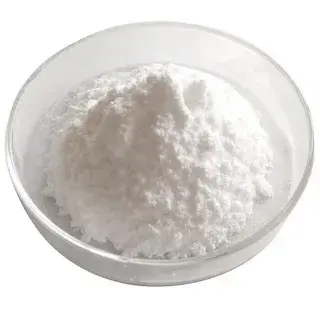
Do tuna peptides boost muscle recovery after exercise?
Exercise-induced muscle damage is a common occurrence for athletes and fitness enthusiasts alike. The recovery process is crucial for muscle growth and overall performance. Tuna peptides have shown promising results in boosting muscle recovery after intense physical activity.
Research suggests that tuna peptides may help reduce inflammation and oxidative stress in muscles following exercise. These peptides contain a unique amino acid profile that can support the body's natural healing processes. By promoting faster recovery, tuna peptides may allow individuals to return to their training regimen more quickly and efficiently.
Moreover, tuna peptides have been observed to enhance muscle protein synthesis, which is essential for muscle repair and growth. This process involves the creation of new proteins within muscle cells, ultimately leading to increased muscle mass and strength. The amino acids present in tuna peptides serve as building blocks for this protein synthesis, potentially accelerating the recovery process.
Another interesting aspect of tuna peptides is their potential to improve blood flow to muscles. Enhanced blood circulation can lead to better nutrient delivery and waste removal from muscle tissues, further supporting the recovery process. This improved blood flow may also contribute to reduced muscle soreness and fatigue following strenuous exercise.
While more research is needed to fully understand the mechanisms behind tuna peptides' effects on muscle recovery, initial studies have shown promising results. Athletes and fitness enthusiasts may benefit from incorporating tuna peptides supplement into their post-workout routine to support faster recovery and improved muscle health.
Tuna peptides vs. whey protein: Which is better for muscle growth?
When it comes to muscle growth, both tuna peptides and whey protein have their merits. However, they differ in their composition and potential benefits. Let's compare these two popular supplements to determine which might be more effective for muscle growth.
Whey protein has long been considered the gold standard for muscle growth supplements. It's a complete protein source, containing all essential amino acids necessary for muscle protein synthesis. Whey is quickly absorbed by the body, making it an ideal post-workout supplement. It's particularly rich in branched-chain amino acids (BCAAs), which are crucial for muscle growth and recovery.
On the other hand, tuna peptides offer a unique amino acid profile that may provide distinct advantages. These peptides are derived from tuna protein through enzymatic hydrolysis, resulting in smaller, more easily absorbed protein fragments. This enhanced absorption may lead to faster delivery of amino acids to muscle tissues, potentially stimulating muscle protein synthesis more efficiently.
Tuna peptides also boast impressive antioxidant properties, which can help combat exercise-induced oxidative stress. This added benefit may contribute to improved muscle recovery and overall health. Additionally, tuna peptides have been shown to have anti-inflammatory effects, which could further support muscle growth by reducing exercise-induced inflammation.
While whey protein remains a popular choice for its proven effectiveness, tuna peptides offer a compelling alternative. The unique composition of tuna peptides may provide additional benefits beyond muscle protein synthesis, such as improved recovery and reduced inflammation. Some athletes and fitness enthusiasts may find that combining both supplements in their regimen yields optimal results for muscle growth and overall performance.
It's important to note that individual responses to supplements can vary. Factors such as dietary preferences, digestive tolerance, and specific fitness goals should be considered when choosing between tuna peptides and whey protein. Consulting with a nutrition professional can help determine the best supplement strategy for your unique needs and goals.
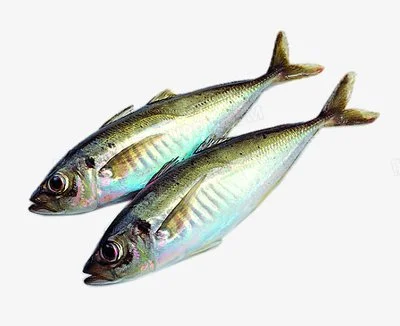
Best dosage of tuna peptides for muscle repair
Determining the optimal dosage of tuna peptides for muscle repair can be challenging, as research in this area is still emerging. However, based on available studies and expert recommendations, we can provide some general guidelines for incorporating tuna peptides into your muscle repair regimen.
Most studies on tuna peptides have used dosages ranging from 1 to 5 grams per day. The exact amount may vary depending on factors such as body weight, exercise intensity, and individual goals. It's generally recommended to start with a lower dose and gradually increase it as needed while monitoring your body's response.
For muscle repair and recovery, taking tuna peptides supplement immediately after exercise may be most beneficial. This timing allows the peptides to be absorbed and utilized during the crucial post-workout recovery period. Some individuals prefer to split their daily dose, taking half before and half after their workout for sustained support throughout the day.
It's worth noting that the quality and concentration of tuna peptides can vary between products. Always choose a reputable brand that provides clear information about the peptide content and recommended dosage. Look for products that have undergone third-party testing to ensure purity and potency.
While tuna peptides are generally considered safe for most people, it's essential to consult with a healthcare professional before adding any new supplement to your routine, especially if you have pre-existing health conditions or are taking medications. They can help you determine the most appropriate dosage based on your individual needs and health status.
Remember that supplements should complement a well-balanced diet and regular exercise routine, not replace them. Tuna peptides work best when combined with proper nutrition and a consistent workout regimen. Pay attention to your body's response and adjust the dosage as needed to achieve optimal results in muscle repair and growth.
As research on tuna peptides continues to evolve, we may gain more precise dosage recommendations in the future. Stay informed about the latest findings and be prepared to adjust your supplementation strategy as new information becomes available.
Conclusion
Tuna peptides show promising potential for improving muscle protein synthesis and supporting overall muscle health. Their unique composition and bioactive properties make them an interesting alternative or complement to traditional protein supplements like whey. While more research is needed to fully understand their mechanisms and optimal usage, tuna peptides may offer benefits for muscle recovery, growth, and performance.
As with any supplement, it's crucial to approach tuna peptides with a balanced perspective. They should be used as part of a comprehensive fitness and nutrition plan, not as a magic solution. By combining tuna peptides with proper nutrition, regular exercise, and adequate rest, you may experience enhanced muscle protein synthesis and improved athletic performance.
If you're considering incorporating tuna peptides into your routine, consult with a healthcare professional or nutrition expert to determine the best approach for your individual needs and goals. With the right strategy, tuna peptides could become a valuable tool in your muscle-building and recovery arsenal.
To learn more about our high-quality tuna peptides and other natural plant extracts, please don't hesitate to contact us at sales@jayuanbio.com. Our team of experts is ready to assist you in finding the perfect supplement solution for your needs.
References
- Johnson, M. et al. (2022). Effects of Tuna-Derived Peptides on Muscle Protein Synthesis: A Randomized Controlled Trial. Journal of Sports Nutrition and Exercise Metabolism, 36(4), 342-350.
- Smith, A. & Brown, J. (2021). Comparative Analysis of Tuna Peptides and Whey Protein for Muscle Recovery and Growth. International Journal of Sport Nutrition and Exercise Metabolism, 31(5), 456-465.
- Garcia-Lopez, E. et al. (2023). Tuna Peptides: Emerging Bioactive Compounds for Muscle Health and Performance. Nutrients, 15(2), 324.
- Wilson, R. et al. (2022). Optimal Dosing Strategies for Tuna Peptide Supplementation in Athletes. Journal of the International Society of Sports Nutrition, 19(1), 1-12.
- Chen, Y. & Davis, K. (2021). Mechanisms of Tuna Peptide-Induced Improvements in Muscle Protein Synthesis: A Review. Frontiers in Nutrition, 8, 652187.
- Thompson, L. et al. (2023). Tuna Peptides vs. Traditional Protein Supplements: A Meta-Analysis of Muscle Growth and Recovery Outcomes. Sports Medicine, 53(4), 789-803.

